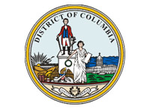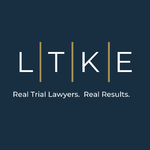- TPS Group
- Areas Served
- Washington D.C
- The Pension Service
- Profit Sharing Plans


Profit Sharing Plans in Washington D.C
TPS Group offers the expertise needed to develop and implement a Profit Sharing Plan that is tailor fit to your business. As with 401(k) plans, you can make a profit-sharing plan as simple or as complex as you want. A profit-sharing plan is available for a business of any size, and it can be established even if a company already has other retirement plans.
Profit sharing plans allow the employer to provide non-elective contributions to eligible employees.

TPS Group offers the expertise needed to develop and implement a Profit Sharing Plan in Washington D.C that is tailor fit to your business. As with 401(k) plans, you can make a profit-sharing plan as simple or as complex as you want. A profit-sharing plan is available for a business of any size, and it can be established even if a company already has other retirement plans.
What is a Profit Sharing Plan
A profit-sharing plan, also known as a deferred profit-sharing plan or DPSP, is a plan that gives employees a share in the profits of a company. Under this type of plan, an employee receives a percentage of a company's profits based on its quarterly or annual earnings. This is a great way for a business to give its employees a sense of ownership in the company, but there are typically restrictions as to when and how a person can withdraw these funds without penalties. A profit-sharing plan accepts discretionary employer contributions. There is no set amount that the law requires you to contribute. If you can afford to make some amount of contributions to the plan for a particular year, you can do so. Other years, you do not need to make contributions. Also, your business does not need profits to make contributions to a profit-sharing plan.
If you establish a Profit Sharing Plan in Washington D.C, you:
- Can have other retirement plans
- Can be a business of any size
- Need to annually file a Form 5500
Profit Sharing Plans & 401 (k) Plans
Profit Sharing plans are often paired with 401(k) Plans. A variety of profit sharing formulas are available including pro-rata, integrated, age-weighted and new comparability. We can help determine which formula is best for your organization.
Comp-To-Comp Method
One common method for determining each participant’s allocation in a profit-sharing plan is the “comp-to-comp” method. Under this method, the employer calculates the sum of all of its employees’ compensation. To determine each employee’s allocation of the employer’s contribution, you divide the employee’s compensation (employee “comp”) by the total comp. You then multiply each employee’s fraction by the amount of the employer contribution. Using this method will get you each employee’s share of the employer contribution.
Integration Method
Also known as Permitted Disparity, the Integration method is a way of recognizing compensation earned in excess of a percentage of the Taxable Wage Base (TWB). Integration is considered a uniform allocation method because it takes into consideration that the Social Security system favors employees that earn amounts under the Taxable Wage Base.
New Comparability Option
The New Comparability allocation method allows the employer to split its employees into groups and to assign different allocation percentages to each group. Classifications may be defined in a number of ways, the most common of which is by job title. Classifications may also be based on the employer’s different geographic locations, subsidiaries, employee types (i.e., union vs. non-union or hourly vs. salaried), and other similar bona fide business criteria. This allocation method has to pass certain non-discrimination tests, however, this method usually allows maximum allocation for the owner while minimizing costs to employees.
For more information about Profit Sharing Plans in Washington D.C, Contact TPS Group Today.
Related to: Third Party Administrator in Washington D.C, TPA in Washington D.C, Pension Plan Design Consultant in Washington D.C, Retirement Plan Consultant in Washington D.C, 401k Plan Assistance in Washington D.C, Retirement Plan Design in Washington D.C, Actuarial Consulting in Washington D.C, Pension Consultant in Washington D.C, 401k Plan Consultant in Washington D.C, Actuarial Services in Washington D.C, Retirement Plan Integration in Washington D.C, 401k TPA in Washington D.C
Further Reading: Profit Sharing Plans
- 401k and Retirement Plan Limits for the Tax Year 2024
- Choosing A Retirement Plan For Your Small Business
- Compliance Dates & Deadlines
- Creative Plan Design Presentation
- ERISA 3(16) Fiduciary Responsibilities: Key Facts Employers Need to Know
- CARES Act Summary-TPS Group
- How the CARES Act Applies to Your Retirement Plan
- Action Doc: Did You Know You Are a Fiduciary
- Action Doc: Financial Wellness Is Essential to Saving for Retirement
- Action Doc: Maximizing a Business Owners Retirement Benefit
- Action Doc: The Loan They Never Take May Make All the Difference
- Action Doc: Understanding Plan Audits
- Action Doc: Your World Evolves and Your Retirement Plan Should, Too
Profit Sharing Plans Videos
Paying Fees From Plan Assets
Frequently Asked Questions
What does a company have to do after establishing a profit sharing plan?
If you establish a profit-sharing plan, you:
- Can have other retirement plans
- Can be a business of any size
- Need to annually file a Form 5500
Resources
401(k) and Retirement Plan Limits for the Tax Year 2024
401(k) and Retirement Plan Limits for the Tax Years 2018 through 2024.
Internal Revenue Service (IRS)
- Federal tax laws, rules and forms
- Businesses and individuals
- Independent contractor rules for IRS
U.S. Department of Labor (DOL)
- Federal wage and hour law
- Exempt and non-exempt employee status
- Compliance assistance
- Independent contractor rules for DOL
Employee Benefits Security Administration
Benefit plan compliance and assistance (health and retirement) COBRA HIPPA
U.S. Bureau of Labor Statistics (BLS)
Labor statistics & wage data










